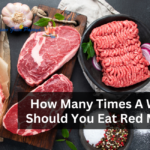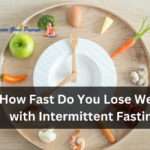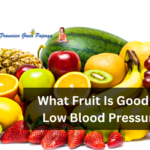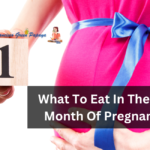We’ve all felt the discomfort of a full and bloated stomach at some point in our lives. This condition can be physically and mentally upsetting, whether it occurs after a big meal, during times of stress, or for seemingly no cause at all.
In this article, we’ll look at the numerous reasons why your stomach can be feeling full and bloated, as well as potential solutions.
What’s Causing My Stomach Bloating?
The most common cause of stomach pain and bloating is excessive intestinal gas. A digestive condition could be the cause of your bloated tummy after eating.
It could be as easy as eating too much too quickly or due to a food intolerance or another ailment that causes gas and stomach contents to accumulate.
Another typical reason for temporary bloating is your menstrual cycle. A bloated stomach might sometimes suggest a more serious medical condition.
Some Other Reasons For Bloated Stomach
Salt
Your body requires this, but most of us get far more than we require. It causes you to retain water, leading to more significant health issues like high blood pressure.
Not only should you avoid the saltshaker: If you’re like most Americans, you get the majority of your salt from prepackaged and quick foods.
Check food labels for sodium (salt) levels, and keep in mind that just because you can’t taste it doesn’t mean it’s not there.
Too Many Carbohydrates
Carbohydrates provide your body with quick-burning fuel. However, consuming too many at once will cause you to retain water.
And the faster carbs enter your bloodstream, the more likely this is. Simple carbohydrates, such as white bread, candies, pastries, and soft beverages, enter your bloodstream almost rapidly.
Complex carbohydrates, which include whole grains, fruits, and vegetables, do not because they take longer to digest.
You Overeat
So, here’s a simple one. Your stomach is around the size of your fist. It can stretch, but doing so can cause bloating, especially if you eat a lot of salty foods and carbs. One piece of advice is to quit eating before you feel full.
Soda
Gas fills the bubbles in soda and other liquids like beer, champagne, and seltzer. They can load up your digestive system when you drink them.
Although you may be able to burp some of it away, once the gas enters your intestines, it will remain until you pass it.
Furthermore, most sodas are high in sugar, which might cause you to retain water and feel bloated.
You Eat Too Fast
The more air you swallow, the faster you eat. And, as with fizzy drinks, once the air reaches your colon, it can cause bloating.
Because it can take up to 20 minutes for your stomach to inform your brain that you’re full, before your brain gets the information, you can eat until you’re bloated and uncomfortable.
Constipation
Most people have irregular periods from time to time, which might cause you to feel bloated. Some meals, as well as not drinking enough water, abrupt changes in your diet, or stress, might trigger it.
It normally goes away on its own, but exercise and over-the-counter medications can assist. Consult your doctor if it persists for more than a few days.
Dairy
Dairy products like ice cream and milk can produce gas, tummy pain, and bloating if your body cannot easily digest lactose, a dairy sugar.
It is usually not dangerous, however, it is best to avoid milk products. Some medications can make it easier to digest.
This is not the same as a dairy allergy, in which your immune system treats dairy as a hazardous invader. This can be more severe, resulting in hives, vomiting, and bloody feces.
Gaining Weight
If you’ve gained 10 pounds or more in the last year, you may feel bloated since extra weight often accumulates around your stomach.
This takes up space, making it more difficult for your stomach to extend. Consult your doctor about a plan to help you lose weight and feel better.
Fructose
Fructose is a sugar that your body finds more difficult to digest than others. This might result in gas, bloating, and pain.
It’s found in many foods, such as “high fructose corn syrup,” and it occurs naturally in some, such as fruit (particularly dried fruit), honey, onions, and garlic.
A food diary can assist you in keeping track of how you feel after eating particular meals and determining if this is a problem for you.
Fat
It is required by your body to produce cell walls, nerve tissue (such as your brain), and hormones.
However, eating too much of it might induce bloating since your body takes longer to break it down than other types of food.
That suggests it will be around for a longer period of time. It’s also high in calories and, if you’re not careful, might cause you to gain weight, which can make you feel bloated.
Monthly period
Premenstrual syndrome, or PMS, can make some women feel weary, achy, and irritable in the week before their period. It also causes you to retain water, which can cause you to feel bloated.
The reason is unknown, however, hormones appear to be involved. Exercising and avoiding salt, sugar, and simple carbohydrates can help.
Suggestions For Prevention
There are numerous methods for preventing and avoiding bloating:
- Gas-producing foods should be avoided. Cabbage, Brussels sprouts, turnips, beans, and lentils are examples.
- Chewing gum should be avoided.
- When drinking, avoid using straws.
- Reduce or eliminate your consumption of carbonated beverages (such as soda).
- Reduce or avoid foods and beverages containing fructose or sorbitol. Artificial sweeteners are frequently present in sugar-free goods.
- Consume gently.
- Consume extra fiber-rich foods to avoid constipation. If diet alone isn’t enough, consider taking a fiber supplement.
- If you discover that dairy products produce gas and bloating, avoid them.
- Stop smoking.
When Does It Become Serious?
Bloating may usually be managed on your own. However, consult your doctor if you feel weak, lose your appetite, or have diarrhea, fever, weight loss, stomach pain, or blood in your stool.
They may obtain a stool sample or an X-ray of your small intestine to determine what’s wrong or test you for lactose intolerance or celiac disease.
Treatment
To relieve temporary bloating, consult your doctor about over-the-counter medications that relieve gas and bloating. These may consist of simethicone or charcoal caps.
Probiotics (found in some types of yogurt) and certain herbal compounds can also help you feel better.
Peppermint and chamomile tea, caraway, anise, coriander, fennel, and turmeric are among the herbal constituents.
If the cause of your bloating is serious, your doctor will treat the underlying cause.
The sense of a full and bloated stomach can be caused by various circumstances, including overeating, gas accumulation, digestive difficulties, or dietary choices. To ease discomfort and promote digestive well-being, it is critical to determine the underlying reason. Seeking medical advice if symptoms persist or worsen is advised.
Thanks for reading. I hope you find it helpful.










